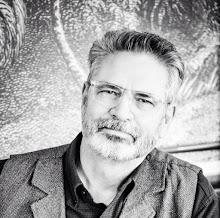By Jonathan Wilson-Hartgrove
Published by Zondervan
I hadn’t heard of Wilson-Hartgrove before, but the Zondervan
imprint, the forward by Shane Claiborne and endorsements by Eugene Peterson,
Phyllis Tickle and Tony Campolo made it clear that the book would be intriguing.
I wasn’t disappointed.
Awakening of Hope,
says Claiborne, “reminds us of the holy habits that have marked Christians for
centuries.” It is a sort of primer on “the new monasticism” that is attracting a
growing number of young Christians. Broken into digestible chapters that
explain the rationale for Christian communal living, the book outlines a
compelling vision of Christian community:
“Why We Eat Together”
“Why We Fast”
“Why We Make Promises”
“Why It Matters Where We Live”
“Why We Would Rather Die Than Kill”
“Why We Share Good News”
The aim of these monastic communities is to live out Jesus’
teachings in the Sermon on the Mount. The book introduces the reader not only
to the disciplines themselves but also to biblical and church history
background behind them, as well as contemporary examples of the disciplines as
they are lived out in Christian monastic communities all across the country.
The accompanying DVD provides interviews and face-time with
not only Wilson-Hartgrove but also with others who are living in these
Christian communities.
The title is significant: Wilson-Hartgrove and Claiborne and
their ilk see these communities as a harbinger of a new thing God is doing in
His church. There is a kind of revival feel to the language, as if these people
believe monastic communities could breathe new life into a stagnant American
Christianity.
They may be right. The book reminded me a little of Gabe
Lyon’s Next Christians, which outlines
the profile of the new, young, socially-conscious believers who will carry the
mantle of leadership as the post-war generation of leaders and visionaries
passes off the scene.
I do have one misgiving about the message of Awakening. If the new monasticism is
understood as the new normal for serious Christians – which Wilson-Hartgrove
suggests but does not explicitly state – then they may have missed the point.
While it’s true that the earliest days of the church practiced communal living,
by the time Paul wrote his letter to Timothy, pastor of the church in Ephesus,
responsibility for helping needy Christians had fallen primarily
to families, with the church providing a secondary, supportive role (see 1
Timothy 5). The nuclear family, after all, is God’s original design for
community. Communes and monasteries are innovation.
I don’t think Wilson-Hartgrove is trying to suggest that all
Christians who live in nuclear families, scattered throughout the
neighborhoods, should all abandon their houses and move into Christian
compounds. That kind of isolationism has its own obvious drawbacks. But he does
a good job of explaining, as he says, why some Christians have – at least for
awhile – stepped out of the typical American lifestyle to embrace something
wholly different and radical.
Awakening of Hope: Why
We Practice a Common Faith is a fascinating read. The thinking the book explores could make a positive impact on the American church. Eating together,
making and keeping covenants, being conscious of the environmental impact of
our lifestyle, choosing non-violence when we can – all of these are valuable insights and
practices for believers, whether we live in nuclear families, with roommates,
or in Christian communes.
